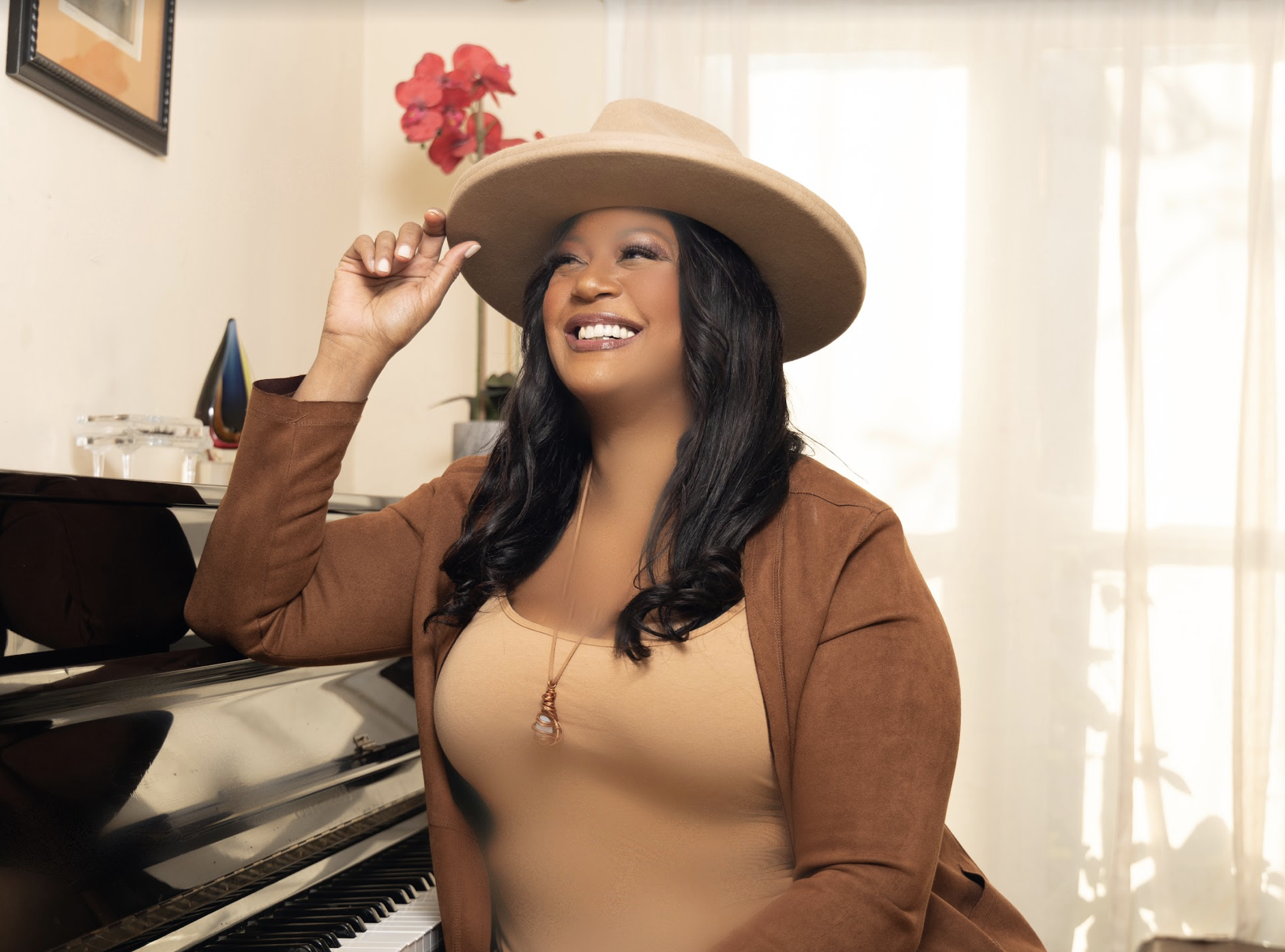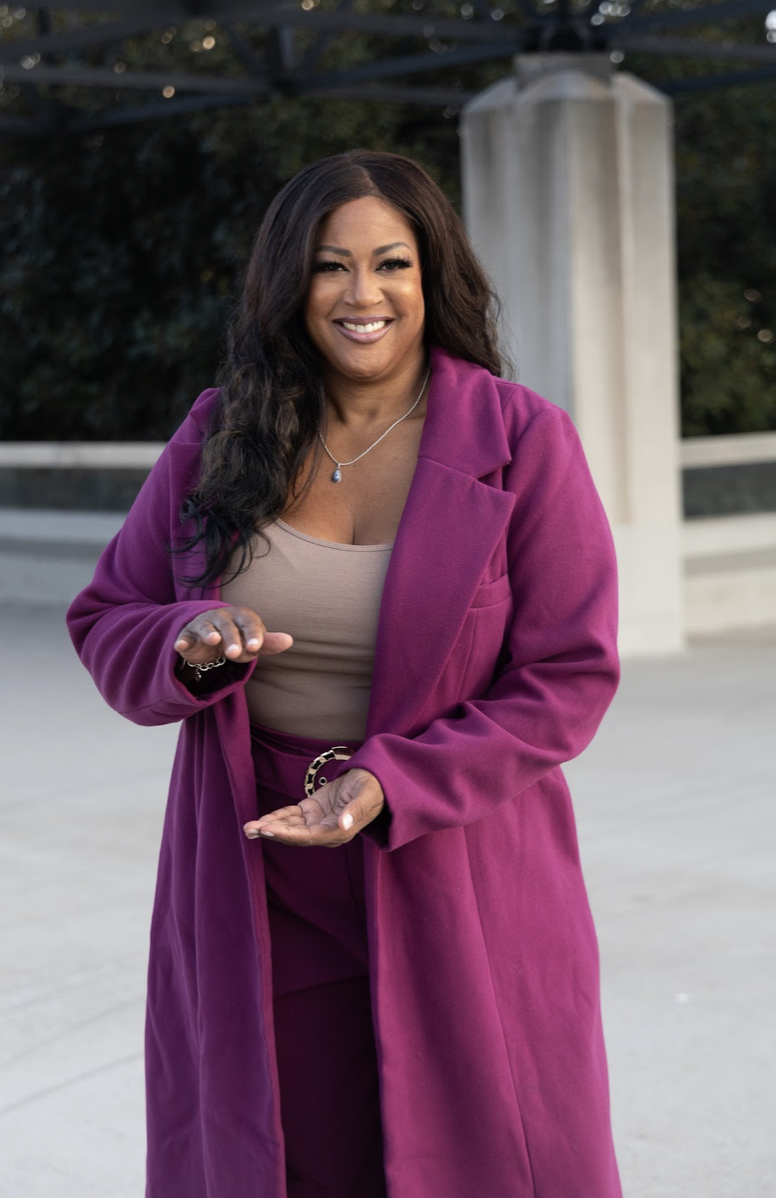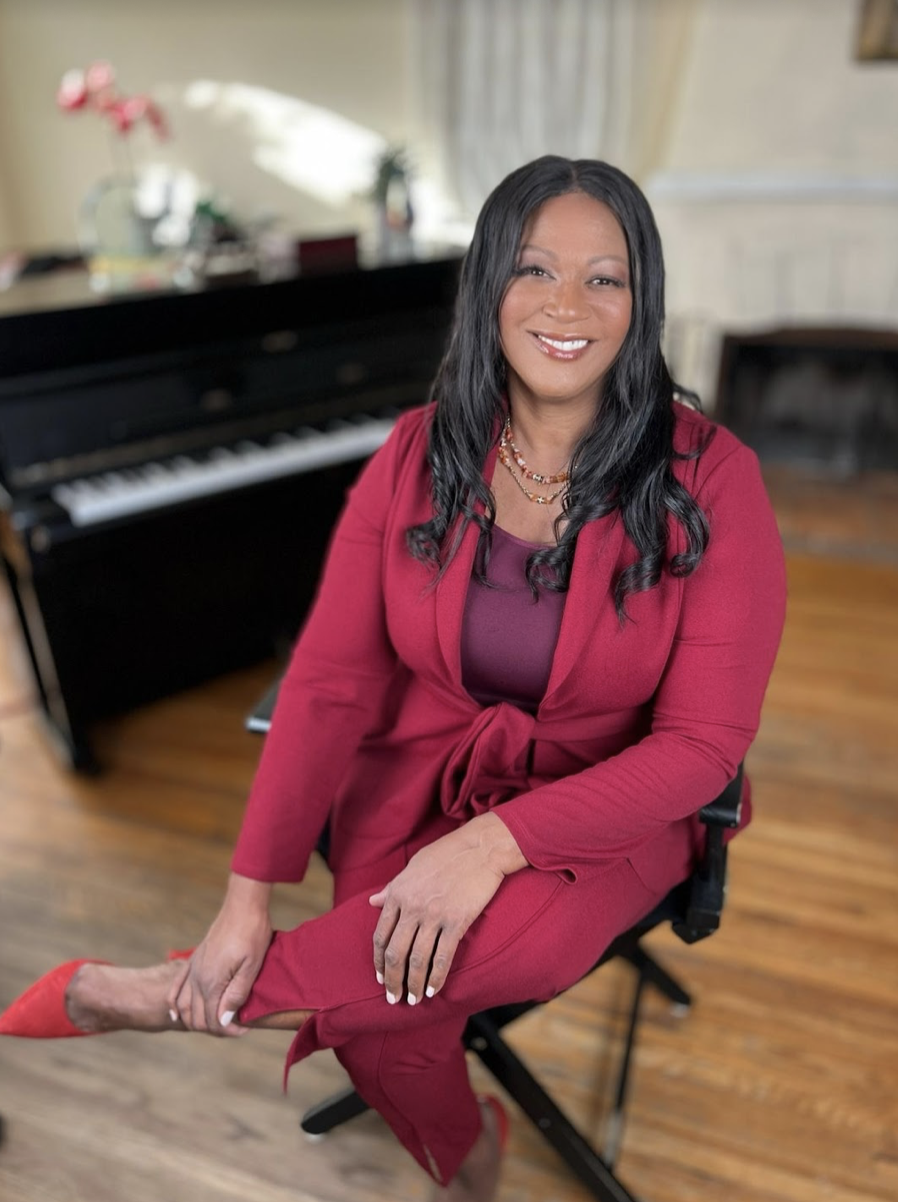Mastering Your Mindset with Charyn Harris
Charyn Harris is a woman who does it all! This Los Angeles-based author, educator, motivational speaker, musician, and music business professional began her career touring as a keyboardist for R&B legend Barry White. She graduated from Berklee College of Music and earned an MBA from The University of Phoenix. In 2004, Charyn founded Project MuszEd, a nonprofit agency providing arts education, performance, and programming. She is also, the host of her own podcast called Musicians Guide to Grit, empowering musicians and females worldwide through her knowledge and expertise as a woman and leader in the music business. She newly released her debut book The Art of War for Creatives, which addresses mastering your mindset and learning to create a foundation for yourself to have the life and career that you deserve. In 2020, Charyn co-founded My Good with Macy Gray, to support families who lost a loved one to police brutality. To learn more about Charyn Harris and the incredible initiatives she has created, continue reading below.
Where are you based?
I'm originally from Mt. Vernon, NY, and based in Los Angeles.
What inspired you to get into music?
I was inspired to pursue music since it was the only activity I felt fairly confident about. I told my parents I wanted to be an attorney, but it didn't seem like a lot of fun. Music was a lot of fun, the lifestyle seemed freeing and not so restrictive. I wasn’t entirely sure about what I was going to do. I knew I wanted to play music and just be around it. I pretty much went into it rather blindly which I wouldn’t recommend, by the way.
You have played along with so many masters! Do you have any favorite memories you can share from your time working with Barry White and/or The Cranberries?
My favorite memories of playing with Barry were having an orchestra behind me every single night and hearing real strings and real horns. It was the integrity of the music. As far as The Cranberries, I spent a comparatively small of amount of time with them then I did with Barry, but I was impressed with how a small band could have such a giant sound. Dolores was such an amazing artist and writer. She really made an impact on music.
Tell us about this transition into writing? Are you still playing music as much?
I have always enjoyed writing. I don't write a lot of music, but this is a similar process. It still allows me to be creative. I have always liked storytelling, and I personally enjoy self-help books. One day, I was thinking about how many people there are, like I was once was, who are trying to figure out how to build a career doing what they love and not having anyone to guide them. That's where I felt I could make a meaningful contribution. I thought about what I didn't learn early on, and how I wish I had more guidance. I'm not playing music as much right now, only because I’m super busy as an artist manager and tour manager. I handle logistics and tour management for Macy Gray and manage an amazing young artist named Melanie Charles. I plan on jumping back into performing over the next year, and plan on doing some local shows or finding a cool little piano bar to perch at where I can sing and play.
You have a new book out, The Art of War for Creatives. Can you tell us a bit about it?
I wrote "The Art of War for Creatives" during the pandemic since I had so much free time on my hands. I didn't want to waste any [time] and I wanted to be productive. One of my former students happened to reach out to me with questions about launching his career. I wanted to make sure I gave him as much information as possible and I also thought about strategy. We can be successful at anything unless we have a solid plan or strategy. I find that it is an important element that most creative people don't consider. I spent a considerable number of years during my career in the business sector and began to understand the value of building strategy in order to grow out a business. I also have steadily observed a few creative individuals who have built interesting and successful platforms along with how they have sustained themselves. I've been fascinated by this subject because on the other extreme, we have creatives who refuse to commit to investing in themselves or even being open to discovering what to do to ensure they can have a successful career doing what they love to do. This is the essence of this book; Building a solid strategy, having clarity, and also, understanding how we can stop ourselves from moving forward due to our own inner dialogue.
You also have a podcast, Musicians Guide to Grit. Can you tell us a bit about this?
I now have two podcasts that I'm excited about. I created "The Musician's Guide to Grit" as an informative podcast on Spotify where I talk about challenges that musicians in particular face and how to make shifts around them. I'm a firm believer that if you have a challenge/problem, don't complain about it, come up with a least three solutions, and start to build out a plan to fix it.
My other podcast is really exciting. It's called "The Charyn Harris Experience" and it's SIRIUS XM's Studio 54 Radio Channel. On this podcast. I interview movers and shakers that helped spawn iconic movements in music and culture — mostly during the NY club scene in the 1980s. There was such an amazing influx of music from around the globe, especially from the UK and Europe that I plan to highlight as well.
What can we find different in the podcast vs your book?
The MGTG podcast bounces off the book. I’m still in the middle of settling on branding around that particular podcast, however, I speak specifically about my challenges as a young musician and how I overcame them. The book is broader in where I am addressing the creative community at-large. We all have transferable skills and it’s important to realize it and implement our knowledge. Eventually, when I have time, I’d like to create more podcasts.
It feels like it is getting harder and harder to make a living as a creative these days. What is your favorite advice to give to creatives trying to make a living off it?
Creatives tend to live in the moment. It’s almost as if they’re waiting to hit the jackpot. One’s career should not be viewed as something to gamble on. We never know what is going to happen, as we witnessed during the pandemic. It’s also unattractive for an adult to live hand-to-mouth. Not only that, having access to savings, investments and medical care is critical. One piece of advice is to create multiple streams of income. I feel it is wise to invest in a skill that will bring a considerable income and will feed into a solid retirement plan. I have several former students who pursued careers as doctors and attorneys. I have an MBA which not only allows me to pursue other avenues if needed, but increases my value. I actually stepped away from playing music once my daughter was born and having the additional skill set allowed me to maintain a level of comfort for myself and my family.
We hear you are working on a new book with Macy Gray! Can you tell us anything without giving away spoilers?
I’m super excited about this. Thanks for asking!. I’m writing a book of Macy’s quotes entitled: “On How Life Is: Sage Advice from Macy Gray.” The public knows very little about Macy other than the glimpses that are in the media. She’s actually very insightful, thoughtful, and a deep thinker. Although she says things with humor, her quotes are pretty amazing. I shared with her that she can inspire so many with her quotes, so decided to take this project on. Here are a few quotes that I thought were pretty insightful:
“The one thing about music is that if you have a great song; nobody cares if you’re a woman, or if you’re a Black woman. They care about the song, and how it makes them feel.”
“Keep pushing forward. A lot of people miss out on things because they stop or don’t wait. It may seem like you got everything right and you should be further ahead, but sometimes you just have to wait. Be patient with your gifts.”
Speaking of Mary Gray, you two have co-founded My Good, an organization to support families who lost a loved one to police brutality. Can you tell us about this organization and the story behind it?
Macy and I founded My Good, along wth Grace Blake, who is based in New York. As we watched the Geroge Floyd and Ahmaud Arbery cases in horror, like the rest of the world, all we could think about was the pain that their families were enduring, especially their mothers. These families have to not only re-live this constantly, they now have a huge void both emotionally and physically. There is an empty chair at their table, a voice they will never hear again, a hug they will never feel again. We only hear about a small fraction of the cases. There are over 1,000 cases annually in the United States alone. Most of them do not get any recognition of settlements. We especially wanted to step in when the media and cameras go away, to support the families with mental health resources and emergency funds. Sometimes a family member just needs someone to talk to. Our biggest goal right now is to raise funds to support mental health support.
Media is a fickle beast, and it seems like we have stopped talking about the BLM movement. How can we still be actively moving society in the right direction?
We have to keep the conversation going. We also need to advocate for more people of color in positions as decision-makers. The inequities that have plagued the Black community are extremely broad and span several generations. The Black community has to begin to control the narrative of telling their own stories. When we don’t tell our own stories, we appear in the media as a threat, whereas there are amazing stories of champions in the Black community that have made life-changing discoveries for all mankind. We also have to bring many of the inequities to light. We’re just beginning to speak about the bombing of successful Black communities in this country that took place in the late 1800s and early 1900s. There were many communities that were taken from the Black community and some that were flooded. When you take something away from a people in such a threatening manner, it also contributes to keeping them in poverty. The Black community is demonized for a lack of finances, but there is a deeper story as to why it has come to be and no accountability. I’m hopeful that this will change.
You are also a huge advocate for arts programming and developing resources to support youth through the arts. Why is this so important to you?
The arts were integral to the community I grew up in. As I looked back, I began to realize that the kids that had consistent access to arts education often excelled in areas that other kids didn’t. Arts education is key to personal and academic development. Arts education provides exposure to discipline, focus, collaboration, and respect for others among other benefits. I feel one of the caveats of growing up in my town with such a heightened focus on the arts is that we all saw each other as people first and didn't focus on generalizing or stereotypes.
In 2004, you founded Project MuszEd, a nonprofit agency providing arts education, performance, and programming. What led you to start this organization?
I founded Project MuszEd to support kids who wanted access to music education. I was fortunate to have parents who were able to give me access to not only lessons but so much culture. I wanted to do as much as I could to help provide access. Some of my fondest memories of growing up were going to the theater, going to concerts and being able to take music lessons. The goal of Project MuszEd was to not only give exposure, but to also inspire and support kids who wanted to learn an instrument but didn’t have the resources. Project MuszEd is now partnering with The White Hall Arts Academy (WHAA), a local music academy that is fantastic. Running a nonprofit successfully is extremely time consuming. By partnering with WHAA, we are able to keep the program alive and build a legacy.
The pandemic has been hard on the performing arts. How are your arts organizations doing? How can our readers support them?
Not only was the pandemic hard on WHAA, which is a smaller nonprofit, many of the parents weren’t able to continue instruction. I like to help organizations such as this one by making a monthly donation and often a larger donation by the end of the calendar year. It doesn’t hurt much and it makes a difference, especially in providing access to the arts. You could be funding beginning lessons for the next huge superstar! To support, simply visit: https://www.whitehallacademy.org/donate.
How have you been staying positive during the latest pass of craziness the world is throwing at us? Are you back to normal now?
Thanks for asking. I hung out on my sofa for the first three months of the pandemic. I couldn’t believe what was happening, and never felt so uncertain in my life. Then, I decided to make a choice. I chose to be productive. I looked at projects I wanted to tackle and started working on them. I practiced more and I wrote. I started planning a few more books after writing my first one. I looked at things around my home that needed attention, and started planning what I would do once the pandemic ended.
What is your motto in life?
My motto is a little hardcore and is a quote from Will Rogers who once said: “A vision without a plan is a hallucination.” I use it often to remind myself and to help others out when they are feeling indecisive. We have to be clear about what we want. We have to build clarity around how to get it, and then we need application to shift it into reality.
To learn more about Charyn and her many projects, please follow her via the links below:
www.charynharrisonline.com
Instagram: @charynharris
Photography by Irvin Rivera.







